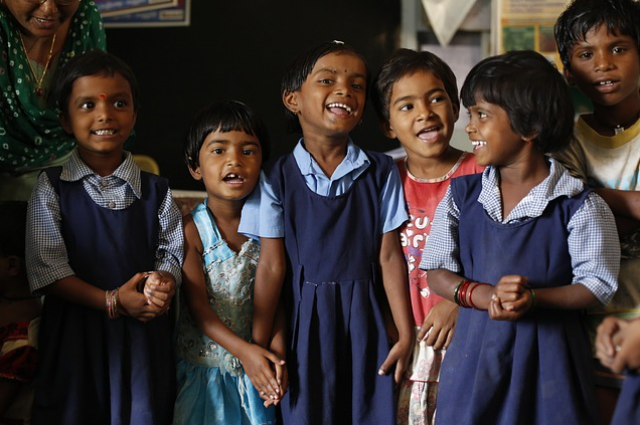
Education is the foundation of any society, shaping the future of young minds and preparing them for the challenges of adulthood. In a landmark move, Karnataka has become the first Indian state to introduce a comprehensive curriculum covering sex education, cyber safety, and moral values in schools. This initiative marks a significant shift towards a holistic educational approach, addressing not only academic growth but also personal development, ethical decision-making, and digital awareness.
For decades, India’s education system has focused heavily on mathematics, science, and literature while neglecting crucial life skills and social awareness. However, with rapid technological advancements, increasing cases of cyber threats, and the need for strong moral foundations, Karnataka’s new educational framework aims to fill this gap. By introducing these subjects, the state hopes to empower students with the knowledge and skills to navigate real-world challenges confidently and responsibly.
This initiative is crucial in today’s world, where misinformation, online exploitation, and ethical dilemmas are becoming more prevalent. Schools have the responsibility not just to teach students what to think but also how to think critically, act responsibly, and make informed choices. Karnataka’s progressive step sets an example for other states, pushing for an education system that prepares students for life beyond textbooks.
Why is This Initiative Needed?
Education is not just about acquiring degrees; it is about learning how to live life wisely. Karnataka’s introduction of sex education, cyber safety, and moral values stems from an urgent need to address societal gaps in knowledge and awareness.
1. Lack of Awareness About Sexual Health and Safety
Sex education remains a taboo topic in many Indian households. This lack of conversation leaves students uninformed about bodily changes, reproductive health, and personal safety. As a result, they often turn to unreliable sources of information, leading to misconceptions and risky behavior. Introducing scientific, age-appropriate sex education ensures that students learn about their bodies in a healthy and informed way. It also educates them on consent, boundaries, and legal rights, helping to reduce instances of harassment and abuse.
2. The Rise of Cyber Threats
In the digital age, children are spending more time online than ever before. However, many lack awareness about cyber risks such as identity theft, cyberbullying, and online exploitation. Karnataka’s cyber safety curriculum aims to equip students with digital literacy skills, ensuring they know how to protect their data, recognize online scams, and respond to cyber threats responsibly.
3. Declining Moral and Ethical Values
With increasing exposure to social media, peer pressure, and materialism, children often struggle with ethical decision-making. Moral education plays a crucial role in shaping students into honest, compassionate, and socially responsible individuals. It teaches respect, patience, kindness, and integrity, values that are essential for both personal and professional life.
Key Features of the Initiative
Karnataka’s new education policy is structured to provide a balanced approach to academic and life skills development.
The key aspects of this program include:
- Sex Education: Taught by qualified professionals, focusing on physical and emotional well-being, relationships, and reproductive health.
- Cyber Safety: Training students and teachers on internet safety, privacy protection, and identifying cyber threats.
- Moral Education: Regular interactive sessions emphasizing empathy, social responsibility, and decision-making skills.
Additionally, the Digital Nagarik Programme, in collaboration with Meta (Facebook’s parent company), aims to train students and teachers in safe digital practices, reaching over 10 lakh students by 2025.
Impact on Students
The expected benefits of this initiative are vast :
- Informed Decision-Making – Students will be better equipped to make health-conscious, ethical, and digital safety-related decisions.
- Reduction in Cyber Crimes – Awareness of cyberbullying and online scams will lead to safer online behavior.
- Healthier Relationships – Understanding consent and emotional well-being will foster respectful interactions.
- Stronger Moral Foundation – Teaching values like honesty, empathy, and responsibility will create ethical future citizens.
A Shift In the Education System
This initiative represents a fundamental shift in India’s education system. Traditional curriculums have long ignored real-life skills, focusing instead on rote learning and academic performance. Karnataka’s step bridges the gap between education and everyday challenges, ensuring students are well-prepared for life beyond school.
If successfully implemented, this model could set a national precedent, influencing other states to introduce similar reforms.
Are Other States Implementing This?
While Karnataka is the first to introduce all three aspects comprehensively, other states have taken small steps:
- Maharashtra & Kerala – Introduced limited sex education programs.
- Delhi – Runs cyber safety campaigns but lacks a formal curriculum.
- Tamil Nadu & Rajasthan – Focus on moral education but not cyber safety or sex education.
However, Karnataka’s integrated approach could inspire a nationwide policy shift.
Challenges in Implementation
Despite its potential benefits, this initiative faces some challenges:
- Cultural Resistance – Many parents and educators are uncomfortable discussing sex education openly.
- Lack of Trained Educators – Teachers need proper training to handle sensitive topics like cyber safety and reproductive health.
- Digital Divide – Rural schools may lack the resources to implement cyber safety training effectively.
- Monitoring and Evaluation – Regular assessments will be needed to measure effectiveness and make improvements.
Conclusion
Karnataka’s decision to introduce sex education, cyber safety, and moral values in schools is a progressive step toward holistic education. By addressing real-world challenges, this initiative ensures that students grow into informed, responsible, and ethical individuals. If successfully implemented, this model could redefine education in India, ensuring future generations are prepared not just for careers but for life itself.
. . .
